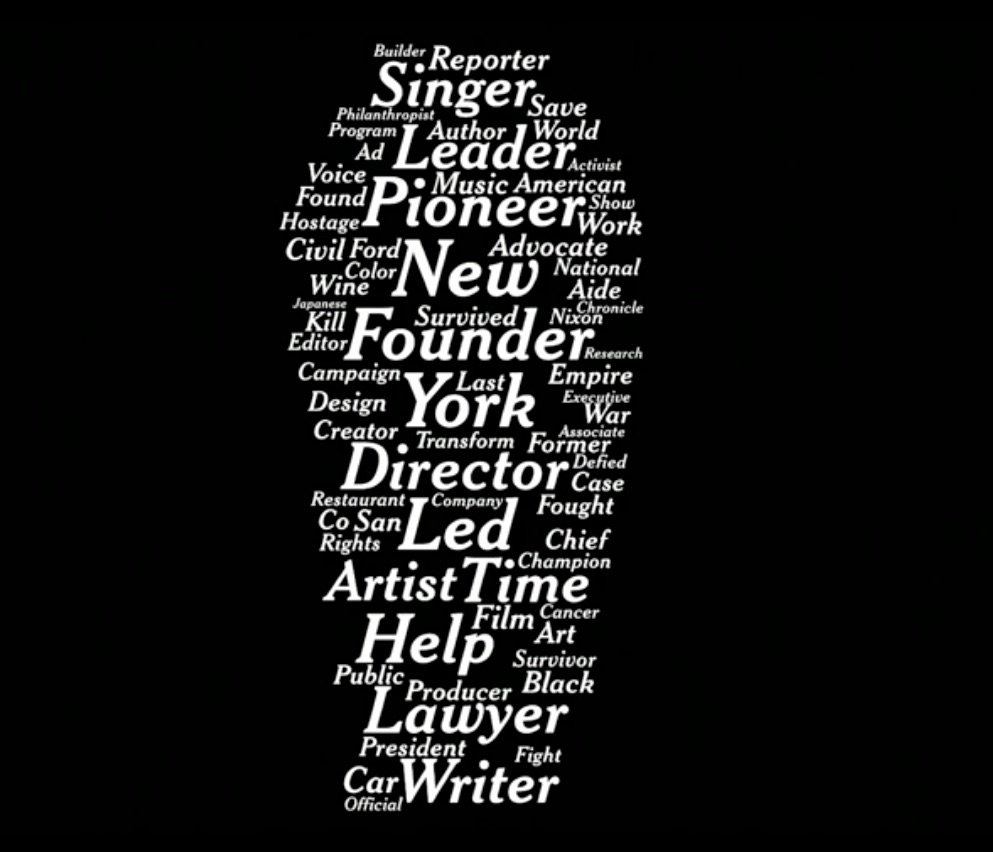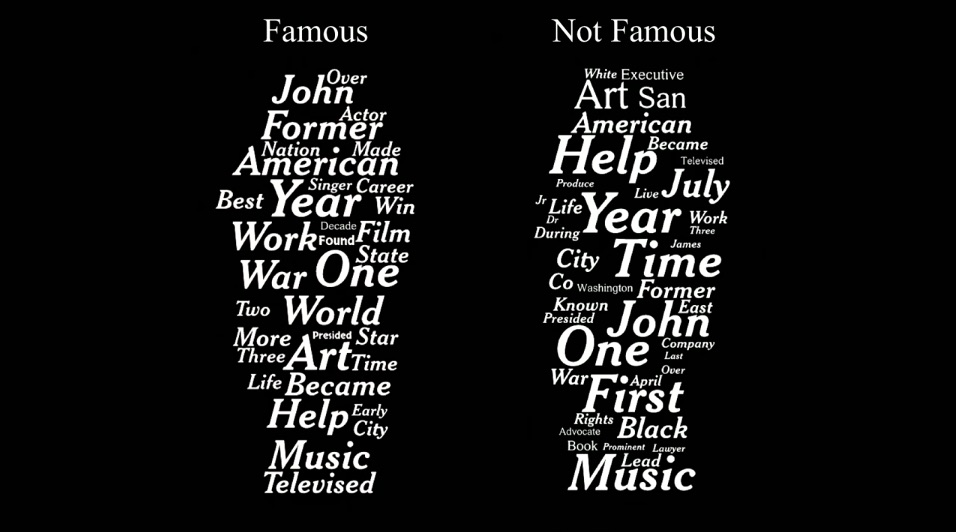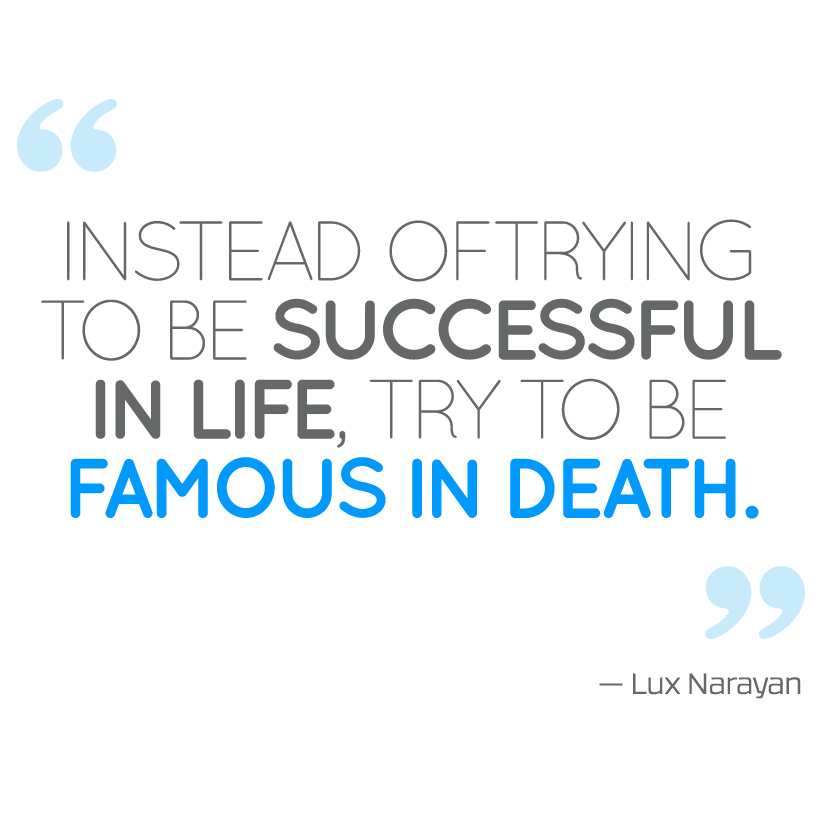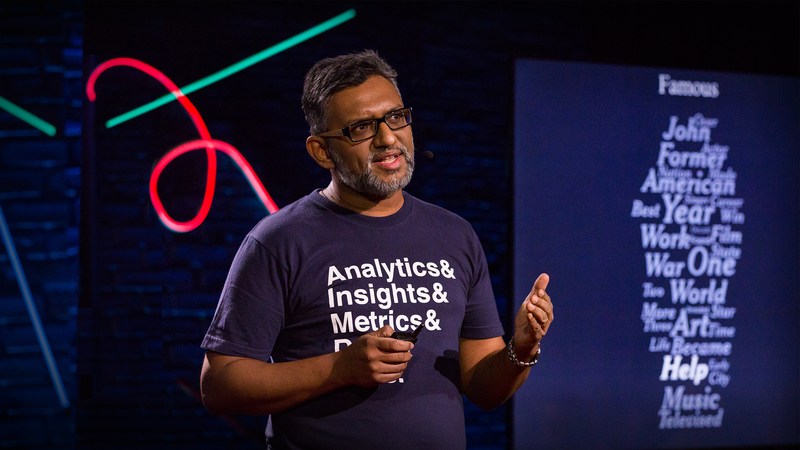This Comparison of 2000 Obituaries Exposes What Our Culture Truly Values
Obituaries play a unique role in our culture, being the final words that a person is remembered by publicly. That is a lot of pressure for the writer. You need to highlight the most valuable things that this person contributed to the world over a lifetime… in 1-3 paragraphs. So under all this pressure, what are the traits, values, and contributions that we highlight? This is the question that Lux Narayan sought to to answer with his recent study and his findings were fascinating and uplifting.
Narayan took New York Times editorial obituaries over 20 months between 2015 and 2016 (2,000 of them) and fed them into a language processor to filter out the filler words exposing the primary topics and patterns.
“Film, theatre, music, dance and of course, art, are huge. Over 40 percent.,” Narayan explains in his TED Talk released last month. He transformed the data into a visualization which clearly exposes patterns.
Watch TED Talk here: https://www.youtube.com/watch?v=JlbwchclCBo

At first, this focus on arts and humanities feels right, but there seems to be a discrepancy between what we value in life and what we value in death. When we introduce ourselves at a party we often talk about how we live… not why we are living, saying, “I am a banker” or “I am a funeral director,” rather than why, “I help people worry less about finances so they can more fully enjoy life” or “I help people through some of the most emotionally difficult times of their lives”
Narayan comments, “You have to wonder why, in so many societies, we insist that our kids pursue engineering or medicine or business or law to be construed as successful.”
Furthermore, Narayan separates the obits into “famous” and “non-famous” individuals revealing a couple funny and interesting trends.
“Two things jumped out at me,” Narayan says, “The first – John….The second – help.”

John appeared significantly in both famous and not-famous word clouds. So if your name is John it looks like you are off to a good start to landing an obituary in the New York Times. The second commonality was the the frequency of the work “help.” This side-by-side comparison levels humanity in a beautiful way. It doesn’t matter if you are Prince or a postman, what people ultimately care about is how much you cared in life – how much you valued and performed acts of compassion – how much you helped.
“We uncovered many lessons from lives well led. And what those people immortalised in print could teach us, the exercise, was a fascinating testament to the kaleidoscope that is life – and even more fascinating was that fact that the overwhelming majority of obituaries featured people famous and non-famous who did seemingly extraordinary things. They made a positive dent in the fabric of life. They helped. So ask yourselves as you go back to your daily lives: How am I using my talents to help society?”
“Instead of trying to be successful in life, try to be famous in death.”

About Author:

Justin Crowe is the creator of Lifeware – ceramics glazed with ashes. Click here to request free product samples mailed to your Funeral Home.




